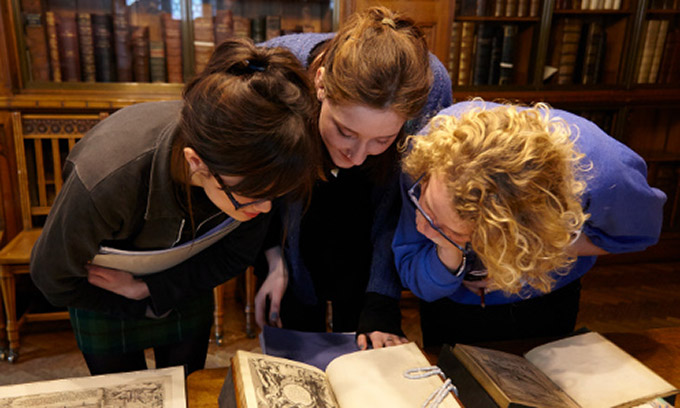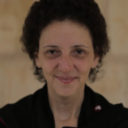As philanthropy professionals, we have long grown accustomed to ‘measuring our impact.’ Equally, though, we have come to be haunted by impact’s dark shadow side: attribution. How can foundation staff ever be certain that their intervention made the difference even when meaningful and lasting change does occur? In most cases, the problems we confront are too complex, too broad, too multifaceted to ever bear linking with a single causal factor.
The Rothschild Foundation Hanadiv Europe [RFHE] is highly specialised – not only is our mission clearly laid out and our area of concern plainly delineated, our funding programmes are also well calibrated, particularly our support for academic Jewish studies. As a result, we can draw some direct lines between our input and the changes that have unfolded in a way that may be more difficult for other grant-givers.
A holistic approach
Our Foundation exists to ensure that Jewish cultural heritage throughout Europe is actively supported, valued and looked after for generations to come. To accomplish this aim, the Foundation awards grants in four main programme areas: archives and libraries with Jewish collections, Jewish museums, Jewish education and academic Jewish studies.

Seminar in the John Rylands Library. Photo credit: University of Manchester/RFHE
This last grant programme – supporting academic Jewish Studies in Europe – was the Foundation’s first, launched some 15 years ago. Between then and now, the Foundation has allocated nearly £10,000,000 toward growing university research into and teaching of Jewish history, languages, literature, religion, philosophy, ethnographic research, and other forms of academic enquiry into Jewish culture and civilisation. It has supported projects spanning the breadth of Europe, from as far East as Uzbekistan and Siberia, to as far West as Ireland and Portugal. Grants have been offered in the form of individual fellowships for the pursuit of doctoral degrees and post-doctoral research, institutional awards in support of faculty lectureships, journal publication, archival and ethnographic expeditions, and scholarships for the study of Jewish languages, such as ancient and modern Hebrew as well as Yiddish, Ladino and Judeo-Arabic. On top of all this, the Foundation is the principal funder of the infrastructure of Jewish Studies including two umbrella associations connecting scholars undertaking research in Europe; namely, the European Association of Jewish Studies and the SEFER Centre for the Teaching of Jewish Civilisation across the Former Soviet Union.
While the time seemed ripe for the rise of Jewish Studies in Europe, supporting that field was not without its challenges.
It is no overstatement to say that the Foundation’s funding of European Jewish Studies is holistic. It is a thread running through the entire ecosystem of Jewish Studies in Europe. Further, RFHE’s other priority areas are tangential and complimentary. Scholars supported by dint of the Jewish Studies Grant Programme might research archival materials that have been restored, catalogued and made available through the Foundation’s Archives and Libraries Grant Programme; or, scholars might contribute to exhibitions mounted by their local Jewish Museum, which may also have received funding from the Foundation through the Jewish Museums Grant Programme; finally, and most importantly, the young researchers who were supported through their doctoral studies or post-doctoral work, might go on to serve as archivists, librarians and curators tasked with the preservation of the artefacts, materials and knowledge of relevance to Jewish Studies. At every point in the cycle, RFHE support may have been garnered. This wrap around care means that the field is invigorated by talented young scholars coming up, shared via relevant forums of engagement, and nurtured through access to relevant materials and artefacts.

The collapse of Communism resulted in a blossoming of interest in formerly taboo areas such as religious studies.
The historical context
15 years ago, though, none of this architecture was in place.
But the launching of the academic Jewish Studies grant programme was timely due to a coincidence of historical forces on either side of the then-still-intact iron curtain.
In the west, the expectation of choice fuelled the development of more highly specialised arts degrees in academia. Further catalysed by the identity politics of the 1960s and 70s, this allowed for the flowering of smaller area studies departments such as African, Chinese, Latin American, Russian and Eastern European Studies, to name but a few. These would go onto be formalised into concrete programmes and organised course offerings by the late 20th Century.
To the East, on the other hand, the collapse of Communism resulted in a blossoming of interest in formerly taboo areas such as religious studies, theology and ethnic minority studies. At the same time, a population whose cultural identities had been suppressed for decades were thirsty for knowledge of what it meant to be Jewish, without necessarily wanting to commit to a religious lifestyle. Academic Jewish Studies provided a safe space for this group to explore Jewish culture and identity. Such seekers flocked to Eastern Europe’s newly formed or re-established Jewish Studies programmes.
Across the continent, the recent adoption of the Bologna process was pushing all those involved in Higher Education toward standardisation, whether they wanted to or not.
Overcoming hurdles
Yet, while the time seemed ripe for the rise of Jewish Studies in Europe, supporting that field was not without its challenges: Chief among these was how to define Jewish Studies. What can and what ought to be included?
In the early days, our Trustees were concerned with how to go about effectively and efficiently funding a field whose remit was as broad as civilisation itself. To begin, they cast their net small. So, that when Foundation staff commissioned a baseline survey in 2001, they sent off the questionnaire to only the 73 official departments, centres, programmes and institutes of Jewish Studies. However, as Prof Martin Goodman pointed out at the time, the selection criteria were flawed from the outset. In a letter to RFHE Trustees dated 13th June, 2001, Goodman writes that the selection of 73 institutions is ‘rather misleading as a reflection of the field… Singling out those institutions that give a name (Centre or Programme) to their scattered staff is to privilege appearance over substance.’
Reactive grantmaking
To account for the fact that the field was not organised into formal departments or centres of Jewish Studies, the Foundation chose a reactive model of grant giving. While RFHE always specified that awards needed to be made within the broad field of Jewish Studies, importantly it never went so far as to dictate actual research questions or topics. Instead, it allowed the field to flourish’naturally’, through the interests of scholars and through the broader academic trends influencing their choices.
Nearly 90 per cent of Foundation alumni secure jobs either within academia or within heritage institutions such as libraries, archives and museums; and, Jewish Studies punches well above its weight in open research council competitions.
Today, we no longer consider the question of definition to be particularly urgent. The Foundation is much more concerned to fund realistic and innovative projects undertaken by competent and serious academics engaged in all areas of Jewish Studies across Europe. It’s a cold comfort of knowing that our pool of potential applicants will never be overwhelmingly large. We are happy to pick from amongst this already select group, not agonising for too long about agreeing on an absolute definition. In sum, RFHE has become much less descriptive and much more selective. Our net is wide, but we are extremely discerning.
We helped the field blossom but challenges remain
Our overarching concern for quality combined with a reactive approach to grantmaking has allowed the field of academic Jewish Studies in Europe to blossom. Numbers alone point to this success: membership of the European Association of Jewish Studies is now nearing 1500, a fourfold increase from when the Foundation initiated its grant programme. Nearly 90 per cent of Foundation alumni secure jobs either within academia or within heritage institutions such as libraries, archives and museums; and, Jewish Studies punches well above its weight in open research council competitions.
 As the only pan-European funder of Jewish Studies, the Foundation deserves some amount of credit for laying the groundwork and tending to the development that’s made such success possible.
As the only pan-European funder of Jewish Studies, the Foundation deserves some amount of credit for laying the groundwork and tending to the development that’s made such success possible.
But challenges and questions remain. Chief amongst these for the Foundation is the crisis in the Humanities: Jewish Studies exists and thrives at the intersection of multiple disciplines. In order for the field to truly flourish, it must be nourished through strong methodological grounding in, for instance, History, Comparative Literature, Philology, Philosophy, Art History and Migration Studies. If these are lacking in investment or scholarly rigour and innovation, then Jewish Studies will be poorer for it.

The uncertainty regarding Brexit has discouraged European universities from partnering with their British counterparts for fear that they may not be invited to join European Research Council projects in the future.
Relatedly, Jewish Studies does not fare well when universities allocate resources based on market forces alone. Although there is a constant stream of interested students, Jewish Studies will never attract enrolment figures to rival the large departments. The rise of the university as business threatens university Jewish Studies across Europe. Even in places as secure as the University of Manchester, university administrators had threatened to axe Hebrew (alongside Persian) language instruction because the student numbers failed to justify the provision.
The broader, shifting political landscape also places pitfalls ahead of the Foundation and its mission. For instance, the uncertainty regarding Brexit has discouraged European universities from partnering with their British counterparts for fear that they may not be invited to join European Research Council projects in the future. More worrying still, the past five years have seen a shrinking space for philanthropic investment in countries such as Hungary and Russia, both of which house key RFHE-funded centres for Jewish Studies.
Notwithstanding these challenges, the story of the growth of Jewish studies shows what a foundation can achieve when a clear vision is combined with a long-term strategic approach designed to foster the whole field. I hope this lesson can be broadly applied, and that the fields of others can flourish as Jewish Studies in Europe has.
Robin Nobel is Senior Grant Programmes Manager at the Rothschild Foundation Hanadiv Europe





Comments (0)